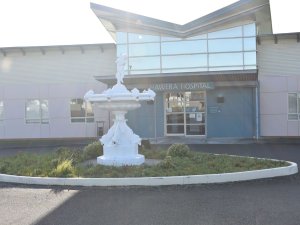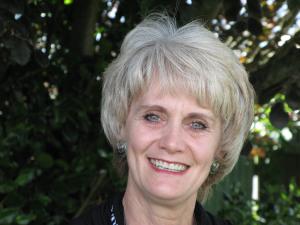Respiratory physician Lutz Beckert considers chronic obstructive pulmonary disease management, including the prevention of COPD, the importance of smoking cessation and pulmonary rehabilitation, and the lifesaving potential of addressing treatable traits. He also discusses the logic of inhaler therapy, moving from single therapy to dual and triple therapy when indicated, as well as other aspects of management
Petty accusations and lack of clarity: Fiery communication heralds opening of DHB-run practice
Petty accusations and lack of clarity: Fiery communication heralds opening of DHB-run practice

“Taranaki GPs are less sophisticated than other GPs due to their overprescribing of ‘downers’ and we ‘do not provide immunisation data in a timely manner’
Emails and letters give an insight into the inception of Taranaki DHB’s controversial general practice, including criticisms over the DHB’s lack of collaboration with local primary care providers.
A letter to the DHB’s chief executive Rosemary Clements and chair Cassandra Crowley from Pinnacle Midlands Health Network writes of an absence of collaboration, clarity, as well as “petty accusations”.
Taranaki DHB set up the South Taranaki Rural General Practice at Hāwera Hospital in November 2020, before officially announcing its opening in February this year.
Concerns were raised back in January, after a storm of complaints erupted from GPs and primary care leaders over the impact this practice would have on existing practices in the area.
On 4 June, New Zealand Doctor Rata Aotearoa filed two Official Information Act requests with the Ministry of Health, and health minister Andrew Little, asking for all correspondence regarding the South Taranaki Rural General Practice.
Over 300 pages of material were received in response, including emails, letters and phone calls between Taranaki DHB, ministry staff members and Pinnacle Midlands.
This includes the aforementioned letter, dated 18 November, written by Pinnacle’s deputy chair Brendon Eade and independent chair Craig McFarlane.
It begins by summing up the key “take-outs” from a meeting held between Pinnacle and Ms Clements and Ms Crowley the week before, with Dr Eade and Mr McFarlane writing of a discussion not held in partnership or “good faith” where it became apparent early on, the agenda was being “manipulated”.
“It became apparent to us all early into the meeting that your agenda to begin with a ‘discussion about the board’s priorities’ was intended to manipulate the conversation to ‘no alternative solutions’ to what you were going to tell us.
“This was confirmed when, as you left, we were advised that the new hospital-based practice was opening this week anyway. We have yet to have any information on what this new service looks like or how it fits with existing care pathways and service.”
READ MORE:
- Storm of complaints erupts over Taranaki DHB’s new general practice
- ‘Complete breakdown of trust’ says PHO as Taranaki DHB finally publicises practice
- Funding for Taranaki DHB’s general practice under development
- Hāwera GP cites DHB’s lack of communication over its new general practice
- DHB’s ‘free care’ new entrant feared as threat to Hāwera practice viability
Both parties agreed on the challenges facing south Taranaki primary healthcare to respond to the needs of its population, and of attracting permanent GPs.
But Dr Eade and Mr McFarlane go on to write that as per their previous communications they have not seen a collaborative approach, with the PHO, non-governmental organisations, or the community to co-design any solutions to these challenges.
“We don’t agree therefore that a practice on the hospital site using predominantly existing workforce capacity is the right solution, or that the DHB is the appropriate provider of primary care services.”
There was also a lack of clarity as to how the new practice addressed issues in the locality, who were its target patients, and “a clear lack of understanding” of enrolment underpinning a primary care service, write Dr Eade and Mr McFarlane.
“Indeed, Rosemary asserted that any new model of care needed to have the consumer voice as part of the design, but we fail to see this having been delivered.”
The authors also question the DHB’s logic in deciding to run its own primary care service, and not approaching Pinnacle, given the DHB has “no expertise or experience in this sector”.
“We do not know if it is the solution so would not explore that option without also exploring others.”
They add the PHO wishes to move forward more in a spirit of collaboration and partnership rather than of petty accusations, after being left bemused by statements presented by the DHB “as fact”.
For example, “‘Taranaki GPs are less sophisticated than other GPs due to their overprescribing of ‘downers’ and we ‘do not provide immunisation data in a timely manner’.
“Both statements are unsubstantiated by data the DHB has available. We are very aware of how primary care services can be improved, the complexity of the privately owned business model (and the enormous good value delivered by it).”
The letter finishes by stating Pinnacle’s clear position: “If we cannot be pragmatic and do this within a truly collaborative approach, we simply cannot publicly and privately support the option you have presented to us.
“Thus far it has been presented as a fait accompli with no evidence of collaboration with any other provider or consumer in south Taranaki.”
4 June
New Zealand Doctor Rata Aotearoa files two Official Information Act requests relating to the DHB-run South Taranaki Rural General Practice based at Hāwera Hospital.
-
First request: A request to health minister Andrew Little for all correspondence he has sent or received relating to the practice from 1 September 2019 to June 2021, including letters, emails and phone calls, as well as any advice or reports received or sent by the health minister.
-
Second request: A separate request to the Ministry of Health for any correspondence between the ministry and Taranaki DHB, local PHO, and Taranaki primary healthcare providers.
The request was sent and accepted both by Mr Little’s office, and the ministry.
10 June
The first request is fully transferred from Mr Little’s office to the ministry. New Zealand Doctor is told the information requested appears to be more closely associated with the functions and responsibilities of the ministry and to expect a response in “due course”.
17 June
New Zealand Doctor is asked by the ministry, now in possession of both requests, to refine the requests for information to exclude “all emails and phone calls”.
8 July
New Zealand Doctor is told the first request will be transferred back to Mr Little’s office, as the information requested is more closely aligned with the functions of the minister of health.
“You can expect a response in due course. We apologise for the late notice.”
9 July
An email from Mr Little’s office states New Zealand Doctor can expect a response no later than 5 August
2 August
Response received from the ministry
5 August
Response received from health minister Andrew Little







![Barbara Fountain, editor of New Zealand Doctor Rata Aotearoa, and Paul Hutchison, GP and senior medical clinician at Tāmaki Health [Image: Simon Maude]](/sites/default/files/styles/thumbnail_cropped_100/public/2025-03/Barbara%20Fountain%2C%20editor%20of%20New%20Zealand%20Doctor%20Rata%20Aotearoa%2C%20and%20Paul%20Hutchison%2C%20GP%20and%20senior%20medical%20clinician%20at%20T%C4%81maki%20Health%20CR%20Simon%20Maude.jpg?itok=-HbQ1EYA)
![Lori Peters, NP and advanced health improvement practitioner at Mahitahi Hauora, and Jasper Nacilla, NP at The Terrace Medical Centre in Wellington [Image: Simon Maude]](/sites/default/files/styles/thumbnail_cropped_100/public/2025-03/2.%20Lori%20Peters%2C%20NP%20and%20advanced%20HIP%20at%20Mahitahi%20Hauora%2C%20and%20Jasper%20Nacilla%2C%20NP%20at%20The%20Terrace%20Medical%20Centre%20in%20Wellington%20CR%20Simon%20Maude.jpg?itok=sUfbsSF1)
![Ministry of Social Development health and disability coordinator Liz Williams, regional health advisors Mary Mojel and Larah Takarangi, and health and disability coordinators Rebecca Staunton and Myint Than Htut [Image: Simon Maude]](/sites/default/files/styles/thumbnail_cropped_100/public/2025-03/3.%20Ministry%20of%20Social%20Development%27s%20Liz%20Williams%2C%20Mary%20Mojel%2C%20Larah%20Takarangi%2C%20Rebecca%20Staunton%20and%20Myint%20Than%20Htut%20CR%20Simon%20Maude.jpg?itok=9ceOujzC)
![Locum GP Helen Fisher, with Te Kuiti Medical Centre NP Bridget Woodney [Image: Simon Maude]](/sites/default/files/styles/thumbnail_cropped_100/public/2025-03/4.%20Locum%20GP%20Helen%20Fisher%2C%20with%20Te%20Kuiti%20Medical%20Centre%20NP%20Bridget%20Woodney%20CR%20Simon%20Maude.jpg?itok=TJeODetm)
![Ruby Faulkner, GPEP2, with David Small, GPEP3 from The Doctors Greenmeadows in Napier [Image: Simon Maude]](/sites/default/files/styles/thumbnail_cropped_100/public/2025-03/5.%20Ruby%20Faulkner%2C%20GPEP2%2C%20with%20David%20Small%2C%20GPEP3%20from%20The%20Doctors%20Greenmeadows%20in%20Napier%20CR%20Simon%20Maude.jpg?itok=B0u4wsIs)
![Rochelle Langton and Libby Thomas, marketing advisors at the Medical Protection Society [Image: Simon Maude]](/sites/default/files/styles/thumbnail_cropped_100/public/2025-03/6.%20Rochelle%20Langton%20and%20Libby%20Thomas%2C%20marketing%20advisors%20at%20the%20Medical%20Protection%20Society%20CR%20Simon%20Maude.jpg?itok=r52_Cf74)
![Specialist GP Lucy Gibberd, medical advisor at MPS, and Zara Bolam, urgent-care specialist at The Nest Health Centre in Inglewood [Image: Simon Maude]](/sites/default/files/styles/thumbnail_cropped_100/public/2025-03/7.%20Specialist%20GP%20Lucy%20Gibberd%2C%20medical%20advisor%20at%20MPS%2C%20and%20Zara%20Bolam%2C%20urgent-care%20specialist%20at%20The%20Nest%20Health%20Centre%20in%20Inglewood%20CR%20Simon%20Maude.jpg?itok=z8eVoBU3)
![Olivia Blackmore and Trudee Sharp, NPs at Gore Health Centre, and Gaylene Hastie, NP at Queenstown Medical Centre [Image: Simon Maude]](/sites/default/files/styles/thumbnail_cropped_100/public/2025-03/8.%20Olivia%20Blackmore%20and%20Trudee%20Sharp%2C%20NPs%20at%20Gore%20Health%20Centre%2C%20and%20Gaylene%20Hastie%2C%20NP%20at%20Queenstown%20Medical%20Centre%20CR%20Simon%20Maude.jpg?itok=Z6u9d0XH)
![Mary Toloa, specialist GP at Porirua and Union Community Health Service in Wellington, Mara Coler, clinical pharmacist at Tū Ora Compass Health, and Bhavna Mistry, specialist GP at Porirua and Union Community Health Service [Image: Simon Maude]](/sites/default/files/styles/thumbnail_cropped_100/public/2025-03/9.%20Mary%20Toloa%2C%20Porirua%20and%20Union%20Community%20Health%20Service%20in%20Wellington%2C%20Mara%20Coler%2C%20T%C5%AB%20Ora%20Compass%20Health%2C%20and%20Bhavna%20Mistry%2C%20PUCHS%20CR%20Simon%20Maude.jpg?itok=kpChr0cc)